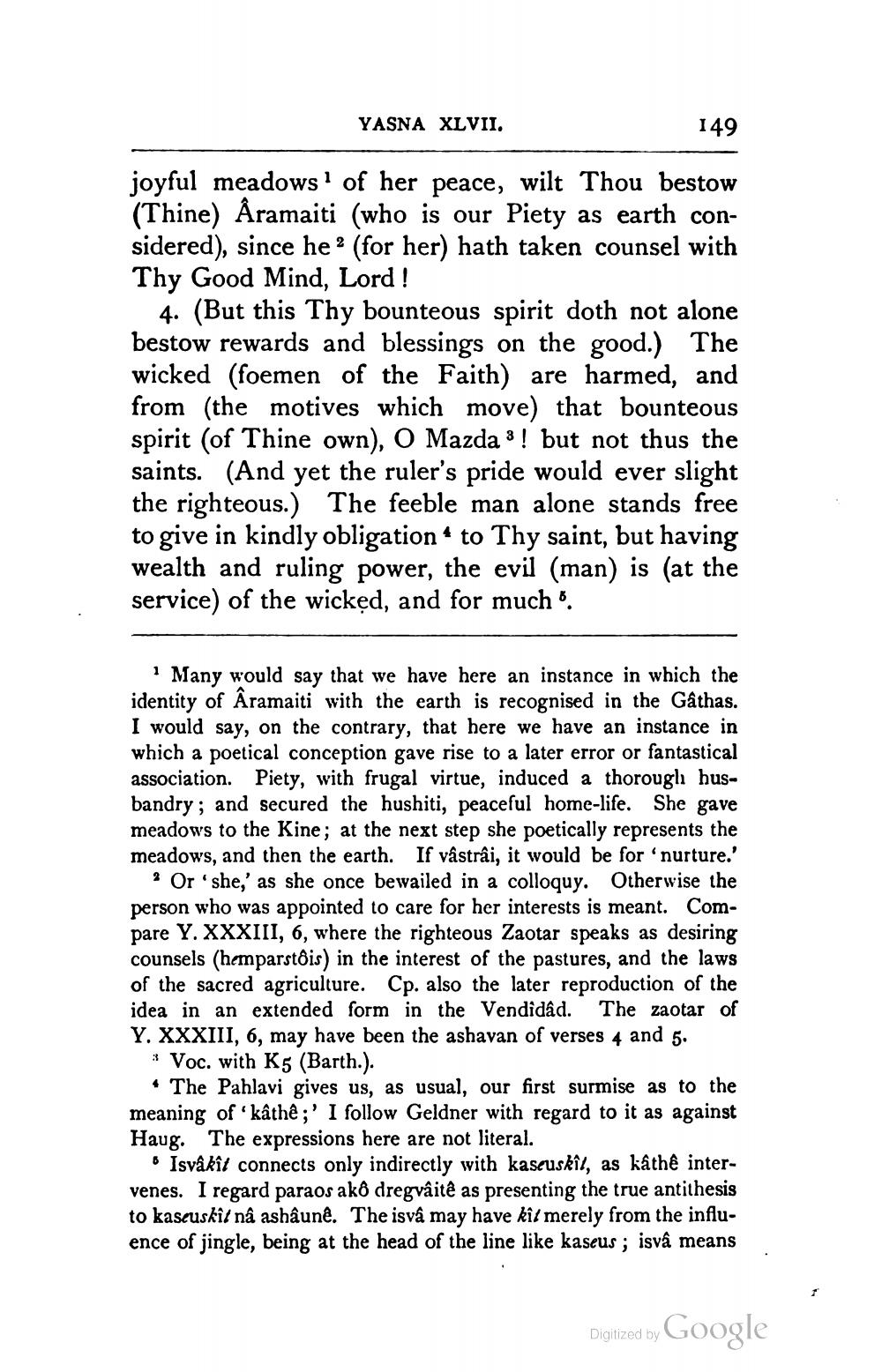________________
YASNA XLVII,
149
joyful meadows of her peace, wilt Thou bestow (Thine) Åramaiti (who is our Piety as earth considered), since he ? (for her) hath taken counsel with Thy Good Mind, Lord !
4. (But this Thy bounteous spirit doth not alone bestow rewards and blessings on the good.) The wicked (foemen of the Faith) are harmed, and from (the motives which move) that bounteous spirit (of Thine own), O Mazda 3 ! but not thus the saints. (And yet the ruler's pride would ever slight the righteous.) The feeble man alone stands free to give in kindly obligation to Thy saint, but having wealth and ruling power, the evil (man) is (at the service) of the wicked, and for much .
? Many would say that we have here an instance in which the identity of Aramaiti with the earth is recognised in the Gâthas. I would say, on the contrary, that here we have an instance in which a poetical conception gave rise to a later error or fantastical association. Piety, with frugal virtue, induced a thorough husbandry; and secured the hushiti, peaceful home-life. She gave meadows to the Kine; at the next step she poetically represents the meadows, and then the earth. If vâstrâi, it would be for nurture.'
? Or 'she,' as she once bewailed in a colloquy. Otherwise the person who was appointed to care for her interests is meant. Compare Y. XXXIII, 6, where the righteous Zaotar speaks as desiring counsels (hemparstôis) in the interest of the pastures, and the laws of the sacred agriculture. Cp. also the later reproduction of the idea in an extended form in the Vendidad. The zaotar of Y. XXXIII, 6, may have been the ashavan of verses 4 and 5.
3 Voc. with K5 (Barth.).
• The Pahlavi gives us, as usual, our first surmise as to the meaning of 'kâthê;' I follow Geldner with regard to it as against Haug. The expressions here are not literal.
Isvåkît connects only indirectly with kascuskil, as kåthe intervenes. I regard paraos ako dregvâitê as presenting the true antithesis to kascuskit na ashâune. The isvá may have kit merely from the influence of jingle, being at the head of the line like kaseus ; isvâ means
Digitized by
Digitized by Google




